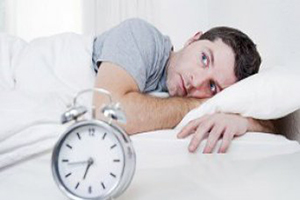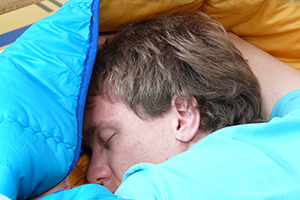If you work in an uncomfortable environment, chances are your whole life has been negatively affected by this ordeal, including your quality of sleep. This is no small thing. According to an article on the Harvard University website, adults who were deprived of sleep even for a short period of time report that they feel mentally and physically exhausted, angry, stressed out, and sad.
Unfortunately, these lapses in sleep can be the root cause of many mood disorders, so it’s imperative that you get your sleep situation under control. Here’s a look at how a lack of sleep due to stress may be affecting you as well as some solutions for correcting this issue.
It Causes Insomnia
 According to The Huffington Post, stress can increase your bouts of insomnia by almost 20%. When you’re worried about a big project at work or upset by an exchange with your boss, your mind may do a little “squirrel-cage thinking” to try to solve the problem. This can leave you staring at the ceiling for hours, cutting into sleep time.
According to The Huffington Post, stress can increase your bouts of insomnia by almost 20%. When you’re worried about a big project at work or upset by an exchange with your boss, your mind may do a little “squirrel-cage thinking” to try to solve the problem. This can leave you staring at the ceiling for hours, cutting into sleep time.
This isn’t good news for you if you’re one of the many Americans, who already need more sleep than you’re getting. Many people would benefit from having an extra hour to hour-and-a-half of extra sleep, according to information on the APA website.
However, if you’re tossing and turning, you’re not getting the rest you need.
You May Self-Medicate
Some people who can’t sleep due to stress may try to relax by having a glass of wine or beer before bed. However, an article on WebMD suggests that this coping tactic probably won’t work. In fact, alcohol consumption was shown to reduce the amount of REM or rapid eye movement sleep you get at night. This is the dream state and people need it to fully recover from the day’s stresses.
Additionally, alcohol before bed has been shown to exacerbate bouts of sleep apnea, a condition that stops a person from breathing for a couple of seconds at a time throughout the night. If you’ve tried having a nightcap before bed, you can probably attest to the fact that your sleep suffered, though you may not have known why.
It Becomes A Cycle
If you can’t sleep due to stress, chances are you’ll take steps to alleviate the symptoms that seem to follow you each night after a bad day of work. You may spend many nights staring at the ceiling due to insomnia or you may decide to try using some sort of sleep aid, either alcohol or an over-the-counter medication, to help you fall asleep. Too many nights of doing this sort of thing adds up and your lack of sleep will start to affect your work performance. This, in turn, will cause more stress and the cycle is repeated.
Some Solutions

According to a Forbes article, good sleep and good mental health are connected. If your sleep is only poor quality sleep, your mental health will eventually become compromised. Most adults need at least seven hours of sleep a night. Some need closer to nine or ten. The brain needs sleep to repair itself. In fact, a lack of sleep can impair you at work to the same degree that being drunk would. You’ll also be more prone to conditions like weight gain and diabetes due to the lack of shut-eye. Fortunately, there are solutions. Here are a few of them.
Some Possible Solutions
1. Your bed should be a haven for your stress-weary body. Make sure that you have a comfortable enough mattress that allows you to fall asleep. You may also want to get some special blankets as well as pillows that support the lumbar region of your back.
2. Take steps to work out any kinks you might still have in your neck and other high-tension areas of your body. A number of companies make heated massagers that work out the kinks in your neck. They’re small enough to store beside your bed and may help you relax enough to enter into a more restful state.
3. Get a diffuser and some lavender essential oil. This essential oil has been shown to “cure” many ailments, including insomnia. Fill your diffuser with it and plug it in near your bed. Make this a part of your fall-asleep routine.
4. Deal with your anxiety in the hours before bed. Meditation or yoga has been shown to help alleviate the symptoms of stress. Doing these exercises after a long day’s work may actually put you in a better frame of mind even before you head to bed for the night. You may find this yoga-for-stress-relief video helpful.
5. Confront the issue. Although it may be uncomfortable, you may actually have to address the issues you’re facing at work. If it’s possible, lighten your load. If it’s a toxic person in your work environment, talk to them or your boss, if possible. Or if push comes to shove, look for a work environment that’s just healthier.
Conclusion
An toxic and uncomfortable work environment can wreak havoc on your health and on your sleep patterns. If you go too many nights without good sleep, your problems during the day may actually become worse. To avoid this vicious cycle, be sure to take measures that will help you fall asleep like diffusing essential oils and setting up your bed so that it’s comfortable enough to help you fall asleep. Other activities like yoga may offer some relief. However, if all else fails, you may have to change your work environment all together.
